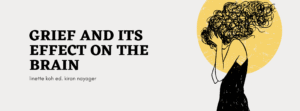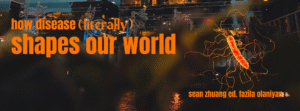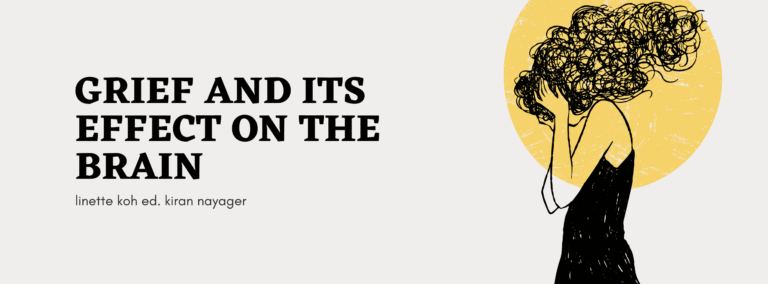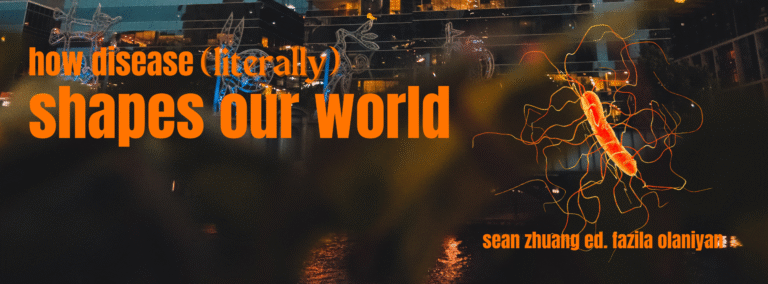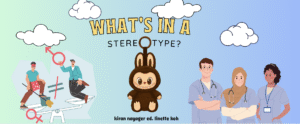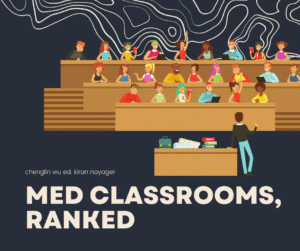
A ChubbyEmu Parody
Disclaimer: Not entirely factually accurate, seek your own doctor for medical advice
Written by Jason Lin; Edited by Zoe Wei
J.C. is a 21-year-old man presenting to the emergency room unconscious. His roommate, Lachlan, tells the admitting nurse that he found J.C. collapsed on his bedroom floor, in a pool of his own sweat and seizing uncontrollably. Lachlan admitted that he hadn’t checked on him in over a week but thought he was pulling an all-nighter and had a few too many energy drinks.
You see, J.C is an otherwise healthy 21-year-old male with no underlying medical conditions. He ate healthy and exercised regularly, however, with the onset of lockdown, his entire lifestyle changed. Stuck in the same room for every day for over 10 weeks straight and deprived of social interaction, enough was enough, he thought. He would buckle down and watch all 980 episodes of One Piece in one sitting.
After turning on the TV, he began watching the first episode. He felt great, energised and captivated by the moving pixels and flashes of colour on the screen. One episode turned into two and two episodes turned into ten. Just your usual, Friday night holiday binge, he thought, as he pressed the next episode button.
Before he knew it, it wasn’t dark outside anymore. In fact, he could see the tinges of orange creeping through from his window from the horizon, getting brighter and brighter. Even J.C was surprised at how long he stayed awake, but he thought it was just another all-nighter like in high school. He could feel his eyelids droop uncontrollably and he would let out a yawn every few minutes. It was clear that he was overwhelmingly tired however there were still 950 episodes to go. He was determined to push on, grabbing an energy drink and continued with the next episode.
Lachlan calls for J.C to grab lunch. He knocks on the door which is locked. He could see that the lights were still on and could faintly hear sounds from the television but got no response. “That lazy bastard, probably sleeping in again,” he thought and didn’t think too much of it. However, inside the room, J.C. was very much awake, alert but exhausted and focusing too much on the show to hear his roommate’s call.
It was now Saturday evening and J.C had been awake for almost 24 hours. Lachlan knocks on his door and hears the same commotion from the TV. Maybe J.C had gone out for the night, he thought. However, inside the room, J.C was getting more and more tired. His floor was littered with empty bottles of energy drinks and he couldn’t keep his eyes open for more than a few seconds. He hadn’t eaten a proper meal for a day, but that was alright because he had a huge stash of potato chips and other snacks hoarded in his room, he thought. He found that he couldn’t concentrate on the show and had forgotten everything that had happened in the past 10 episodes. He was shivering uncontrollably and found that he could barely pick up a can of energy drink. His eyes were puffing up and he had a sudden, insatiable craving for food and his vision became blurry but he had to push on, he thought. He was going to get it done, he was going to finish the entire show.
Another two days have passed and J.C. was still well awake. Through sheer willpower alone, his eyes remained opened and the episodes kept playing. He could feel his heart fluttering and he was slipping in and out of consciousness. He was confused and his memory span plummeted. He had lost his sense of spatial awareness and was unsure what room he was in. Frightened and anxious, he tried yelling but words couldn’t come out of his mouth. His speech was slurred, unintelligible and sometimes, nothing would even be audible.
The flashing lights of the show coalesced into a kaleidoscope of colours in his eyes and he started to hear his name being called, the droning voices of his lecturers, the chirps of birds and the noisy commotion of a party. A person was sitting next to him, his father to be precise, a totem of his childhood who he had adored until his passing when he was 5. The characters in the show jumped out and strolled around the room, Luffy swinging his elastic arms around and knocking over all the contents of his desk. A man with a white and punctured hockey mask peered ominously through his window, brandishing a blood-stained machete while spiders and caterpillars crawled out from under his eyes.
Then darkness.
Flashes of light. The amalgamation of voices. Devils and angels fluttering and revolving around him.
Darkness again.
An insidious cycle that repeated itself countless times. All throughout this ordeal, the episodes perpetually soldiered on. It was now Friday night. One week had passed. Episode 504.
Lachlan finally decided to check on J.C. He walked in the room and there he was, collapsed on the floor in a puddle of his own sweat and cans of energy drinks. However, something wasn’t quite right. His hands were cold and clammy and J.C didn’t seem to be sleeping – he was restless. He felt a pulse however things took a turn for the worse when J.C starts seizing and 911 is promptly called. This brings us to the emergency room, where we are now.
Immediately, J.C is sent in for tests. He was hypertensive, with a reading yielding 170/110, almost 1.5 times the upper threshold of normal. Additionally, serum testing yielded marked hyperglycemia, hyper meaning elevated, glyco from the Greek word glukus meaning “sweet” or in this case “sugar” and -emia meaning presence in blood. Combined, high glucose presence in blood. However, J.C. had barely eaten in over a week so how could this be possible?
Recall J.C.’s excessive consumption of energy drinks throughout this period. Each energy drink has upwards of 50 grams of sugar and multiple cans in one sitting can skyrocket one’s blood glucose in the short term, however the body can usually compensate for that. In a healthy individual with no pre-existing conditions, the pancreas will secrete insulin, stimulating glucose uptake into cells and hence lowering blood glucose. J.C was a healthy 21-year-old man with no history of diabetes on his record, so why is it that his blood glucose is still high?
Another piece of the puzzle is his lack of sleep for the past 7 days. It has been well documented that after 1-2 days without sleep, there are profound hormonal changes that occur in the body. Particularly, lack of sleep interferes with glucose metabolism and insulin sensitivity, explaining this sustained hyperglycemia. It is thought that these hormones are also partly responsible for controlling blood pressure and hence, an imbalance will cause a hypertensive response.
However, despite J.C being unconscious upon presentation and abnormal blood glucose, these factors are all reversible. Though sleep-deprivation has many unpleasant side effects, typically, it isn’t thought that it can outright kill you and there have been no documented cases thus far. In fact, it was determined through electroencephalography that J.C had finally fallen into a deep sleep and he was moved to the general ward for observation.
In the following days, J.C’s condition seemed to be improving. He was responsive and alert, with no signs of neurological impairment, though the events in the last week were a blur to him. However, he was still not at his former energy as he constantly complained about a fluttering in his chest, shortness of breath and fatigue, though the nurses dismissed this as hospital-induced stress.
However, things took a turn for the worse in the afternoon where J.C. suddenly fell unconscious again. Doctors and nurses rushed to his ward and ran a series of tests, however his hands and skin felt cold. A pulse couldn’t be located and a code blue was called across the hospital. The hospital team spent the next hour trying to resuscitate him and in the end, it was successful.
This begs the question, if he was recovering from sleep deprivation and had no known prior cardiovascular history, how could this happen? It is vital to recall the ingredients of the copious amount of energy drinks that he consumed. Apart from sugar, energy drinks also contain substantial quantities of caffeine which is a stimulant. It has been noted that caffeine acts on enzymes within the heart itself to elevate the intensity of the heart’s contractions and it also facilitates the release of neurotransmitters like noradrenaline which have a similar effect on the heart. However, at high doses, it has been reported in literature that this can lead to ventricular fibrillation, a type of arrhythmia referring to the rhythms of the heart: an abnormal heartbeat. This is particularly dangerous as the heart cannot adequately pump blood to the body, resulting in cardiogenic shock. Sustained ventricular fibrillation has been reported to lead to cardiac arrest, which is what exactly happened to J.C.
J.C. was one of the lucky ones and gradually, his condition recovered. He was moved from the ICU to the general ward for observation and after 7 days in the ward, he was ready for discharge. After a stern warning, lots of education and a horrifying experience as a deterrent, J.C made a recovery.
The moral of this case is as such. Binge shows at an adequate (not excessive) level, drink energy drinks in moderation and stay healthy.


